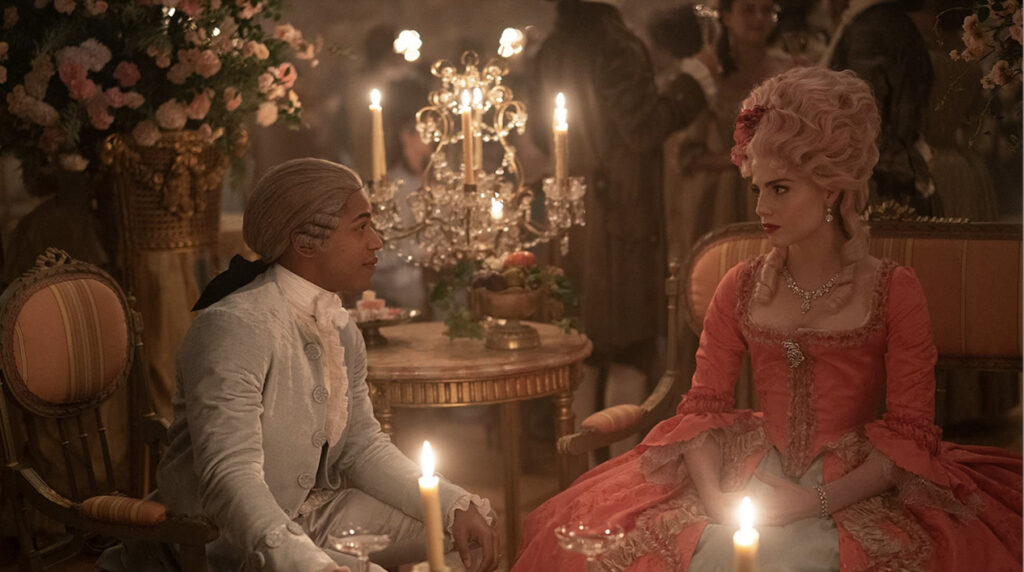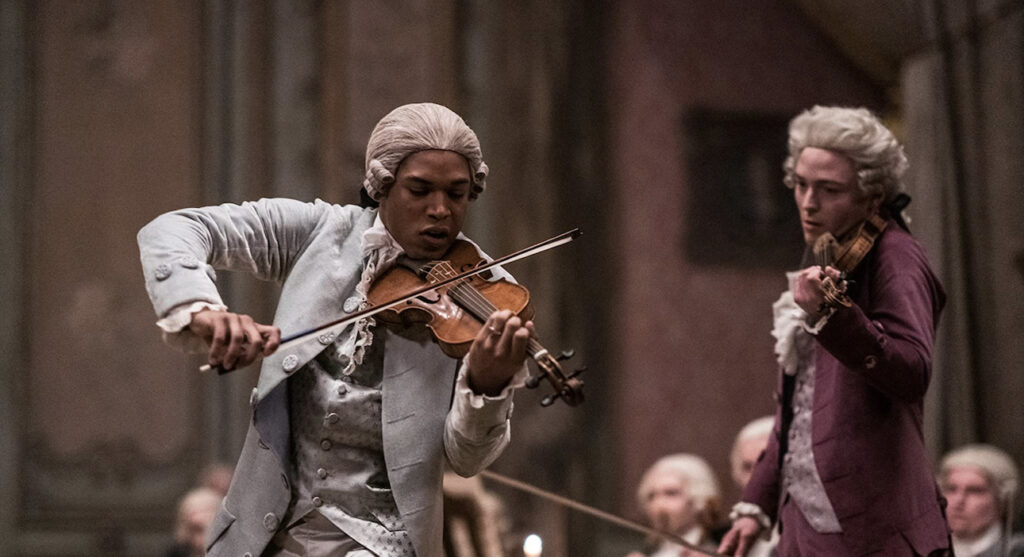[ad_1]
Synopsis: Inspired by the amazing true story of Joseph Bologne, composer of the Chevalier de Saint-Georges. The illegitimate son of an African slave and a French plantation owner, Bologne (Kelvin Harrison Jr.’s Tour de Force performance) went on to become a famous violinist, composer and swordsman in France after an ill-fated love affair. Reach incredible heights in society. and the falling out between Marie Antoinette (Lucy Boynton) and her court.
evaluation: PG-13 (Thematic Content | Suggestive Content | Strong Language | Violence)
Genre: biography, history, drama, music
Original language: English
directed by: Stephen Williams
producer: Ed Guiney, Andrew Lowe, Diane McGiggleStephen Robinson
Writer: Stephen Robinson
Release Date (Theatrical): width
runtime:
Wholesaler: Searchlight photo
Production company: Still King Films, Searchlight Pictures, Element Pictures
Exclusive interview with actress Samara Weaving
Q: Joseph Bologne, like Prince and David Bowie in this era, is incredibly educated in a transcendental way, but most people don’t know about him. What attracted you to him?
SW: I was just fascinated by not knowing who he was. I thought it was really weird and bizarre, so I wanted as many people as possible to know about him. .
Q: Your character Mary Josephine is a real-life opera singer. Has there been much written? What research did you incorporate into your character?
SW: It was hard to find out. Not much information was available about her. Her husband had a lot. It really took advantage of writer Stephanie Robinson. Because she did a lot of research and knew what I didn’t really find. So she was really my resource. And we talked a lot about the life situation she was put in and what she did and how her actions really shaped the character.
Q: It’s a Joseph Bologne story, but what’s great is Stephanie Robinson’s script, which really captures the sensitivity and warmth and Joseph Bologne’s point of view. What was your impression of the script that captivated you with Stephanie’s script?
SW: I think she just captured a really balanced character. I think she’s easy to get into some of those period drama clichés, especially in period dramas, but she wasn’t really a damsel in distress. She could really hold herself and talk. I like that. And I thought it was really powerful.

Q: I heard that Kelvin liked the half-year training in brain wiring, what kind of rigorous training did this process bring to you? What kind of preparation did you do?
SW: I had a wonderful singing teacher, Michael Robbins. We worked together for several months before shooting. He was wonderful, patient and very kind.
Q: What kind of training is it?
SW: He taught me that opera singers really need a lot of breathing techniques, two songs, two arias sung by Marie Josephine, and a beautiful composition that helped us I was also given a house. And I rehearsed and practiced line by line until I could carry it with some grace.
Q: Tell us about your collaboration with director Stephen Williams. Stephen Williams is someone who has a bird’s eye view of things throughout the scene, and you can feel it in the film. What was his appeal as a director, and how was he different from other directors you worked with?
SW: He was great. He had a really interesting concrete vision. He really knew what he wanted in his head. Also, the cast was really great, especially Stephanie’s script, which made it feel so easy.
Q: Since the film relies heavily on the music, what kind of research process did you do with other actors like Minnie Driver? please give me.
SW: I just worked with Kelvin, basically I don’t know about the other actors, but I worked alone with Michael and then came on set. I don’t think we could have rehearsed as often because it was mental. But I went by myself and then came to the set and put it together. So a very strong idea from the composer and Stephen came together really well.

Q: Please tell us about the casting process. How did you get cast in this production? You obviously have a track record of really great movies in the past, but what were the specific things they looked at in you to cast you in this film?
SW: I read Stephanie’s script about a year before the pandemic and met Stephen almost a year later. And we talked a lot about the role, the movie, what it means and the responsibility of taking on something like this. I was very grateful that you thought I wanted it.
Q: Were there any challenges you faced during the COVID-19 pandemic, and what was the process like filming period pieces during Covid that required a lot of costume and makeup?
SW: I mean, we had a great Covid team on set and we went through a lot of testing. Luckily it was coming to an end so we were all vaccinated. Maybe some crew members, but I don’t think the cast got sick. Yeah, we just quarantined and kept ourselves safe. And if we did hang out, we mostly hung out outdoors. But again, I think a lot of people were stressed. We weren’t the ones who had to stress about it.
Q: I heard that this film was screened at the Toronto Film Festival and had a great response. Talk about being with a large audience and showing this film in a place where most people don’t know about Joseph Bologne.
SW: I love the Toronto Film Festival. I think it’s a very cool film festival. The audience seemed to like it and Kelvin got a huge standing ovation which made him very excited. I love doing presses like this. I’m so happy to see you all and I’m so excited about the world premiere that I can hug and make up with you all again.
Q: Joseph was widely known as a composer, but what is interesting about him is his transition from music and performing before the Queen to actually leading soldiers against the monarchy. is. Now talk about your fascination with his transitional age.
SW: Yeah, I think that’s what made him such an interesting character. Stephanie really captured the feeling of not being the sort of person that artists and activists are today. This was someone who, at the time, could have been killed for saying these things, and in the Western world at the time, it was very dangerous to make any changes. He went through such difficulties, but he still clung to what he believed and did not accept. .
Check out more articles by Nobuhiro.
Here is the movie trailer.
[ad_2]
Source link


